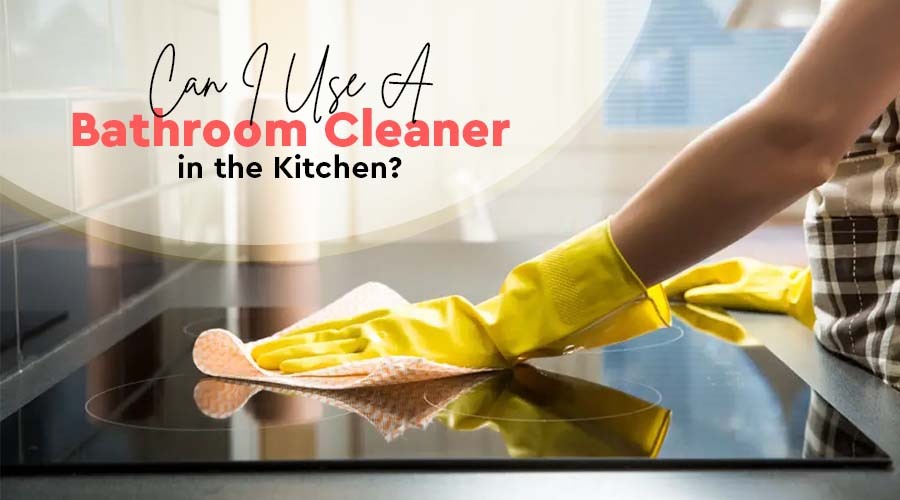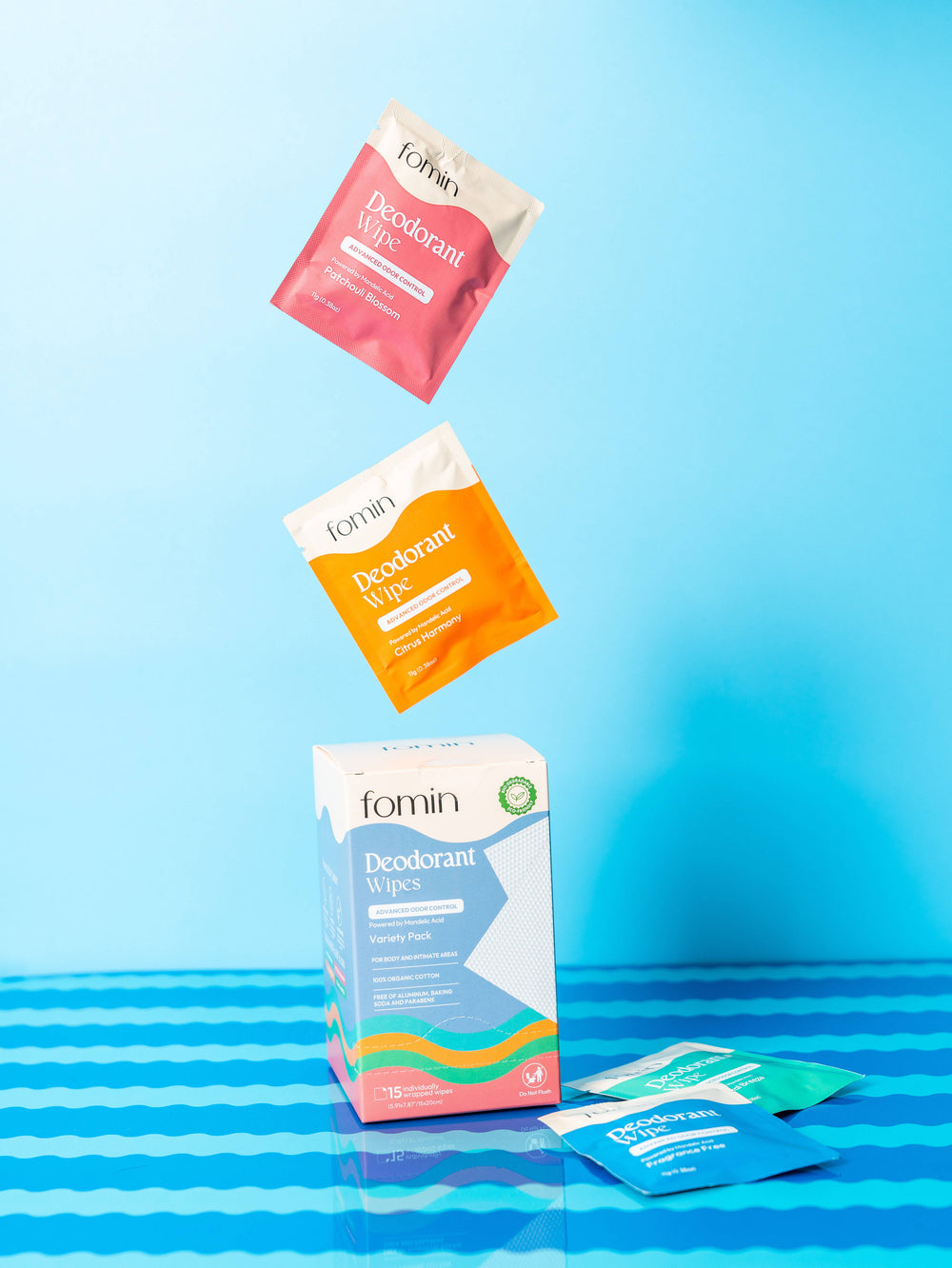
Can I Use a Bathroom Cleaner in the Kitchen? Exploring Safe Options
Share
We often find ourselves with a cabinet full of various cleaning products when it comes to household cleaning. But what happens when you run out of kitchen cleaners, and all you have on hand is bathroom cleaner? Can you use it in the kitchen without causing harm? This common dilemma prompts us to explore bathroom cleaners' versatility and potential application in the kitchen. In this article, we will delve into the safety, effectiveness, and considerations of using bathroom cleaner in your kitchen, offering insights to help you decide whether to reach for that bathroom cleaner when your kitchen needs a refresh.
Is it Safe to Use a Bathroom Cleaner in the Kitchen?
The Simplest Answer: No, You Shouldn't! It's not advisable to use bathroom cleaners in your kitchen. Bathroom cleaners are formulated for bathroom surfaces and issues, and their chemical composition may not be suitable for kitchen surfaces or items. Using them in the kitchen can leave behind residues or chemical traces that could be harmful, especially when it comes to countertops, cutting boards, or utensils that come into contact with food.
Are Kitchen Cleaners and Bathroom Cleaners the Same?

No, kitchen and bathroom cleaners are not the same, and they serve distinct purposes due to the different cleaning challenges presented in each home area. Let's explore the potential risks and dangers associated with this practice, emphasizing the importance of using the right cleaning products for specific areas in your home.
The Chemistry of Cleaners: Understanding the Differences
To understand why bathroom cleaners aren't ideal for the kitchen, it's essential to delve into the chemistry of these products. Bathroom cleaners are formulated to tackle specific bathroom-related issues. They often contain more potent chemicals like bleach or ammonia to combat mold, mildew, and soap scum effectively.
However, kitchen surfaces and items come into direct contact with food, which means they need to be cleaned differently. Kitchen cleaners are designed to remove grease, food residues, and bacteria. They usually contain milder, food-safe ingredients. Using a bathroom cleaner in the kitchen can lead to the transfer of chemicals that might not be safe for food preparation.
If you are looking for the perfect plant-based kitchen and multi-surface cleaning solution, look no further than the Fomin Multi-surface Refill tablet. Each tablet supplies 17oz (500ml) of potent cleaning spray infused with the refreshing scent of Lemon Zest, making it an eco-conscious choice for a clean and fresh kitchen.
Potential Health Risks
Using bathroom cleaner in the kitchen raises concerns about health risks. The residue left behind by bathroom cleaners can contaminate surfaces, utensils, or cutting boards in the kitchen. If not rinsed thoroughly, these chemicals can come into contact with your food, which is a significant health concern. Ingesting or absorbing harsh chemicals from bathroom cleaners can lead to health issues, especially if you have allergies or sensitivities.
Furthermore, inhaling fumes from bathroom cleaners in the kitchen can also be harmful. These fumes can irritate your respiratory system and cause discomfort, making the kitchen a less pleasant and safe space.
Effects on Kitchen Surfaces
Another aspect to consider is the potential damage to kitchen surfaces. Bathroom cleaners can be abrasive and might harm the finish or integrity of kitchen countertops, sinks, and appliances. They can cause discoloration or etching, which may be irreversible. The use of inappropriate cleaning products could mar your beautiful kitchen surfaces.
Does your bathroom smell like urine even after cleaning? Check out our guide for simple solutions.
Bathroom Cleaners Not to Use in Kitchens
Now that we've established that using bathroom cleaners in the kitchen isn't safe, it's crucial to identify which specific bathroom cleaners or ingredients you should avoid using in the kitchen. Here are some common ones to steer clear of:
- Bleach-Based Cleaners: Bleach is a powerful disinfectant commonly found in bathroom cleaners. While it's excellent for disinfecting bathroom surfaces, it's not suitable for kitchen surfaces due to its chemical potency.
- Ammonia-Based Cleaners: Ammonia is another common ingredient in bathroom cleaners. It can leave behind harmful residues and should not be used in food preparation areas.
- Toilet Bowl Cleaners: These are formulated for a specific purpose – cleaning toilet bowls. They contain Hydrochloric acid (HCl) and chemicals that are not meant for kitchen surfaces.
- Mold and Mildew Removers: These products often contain harsh chemicals to combat mold and mildew, which are not present in the kitchen. Using them in the kitchen is unnecessary and potentially hazardous.
Not sure when to clean your bathroom with your busy schedule? Our guide on How Often Should a Bathroom Be Cleaned? can help you find the answers. To balance home care with work, explore flexible part-time job opportunities on Jooble that can fit your schedule and help you manage both responsibilities effectively: https://jooble.org/jobs-work-at-home-online-part-time
Safe Bathroom and Kitchen Cleaning Products
if you're looking for bathroom cleaners that can also be safely used in kitchens, here are some options:
- Vinegar-Based Bathroom Cleaners: Some bathroom cleaners are formulated with vinegar as a primary ingredient. These can be suitable for both bathrooms and kitchens. It's safe for most surfaces and is an effective cleaner, especially for eliminating odors and breaking down mineral deposits.
- All-Purpose Bathroom Cleaners: Look for bathroom cleaners labeled as "all-purpose." These cleaners are designed to handle a range of cleaning tasks and may be safe for kitchen use as well. Always check the labels and ingredients to ensure they don't contain harsh chemicals.
- Eco-Friendly Bathroom Cleaners: Many eco-friendly bathroom cleaners are formulated to be safe for both bathroom and kitchen surfaces. These products often use plant-based ingredients and avoid toxic chemicals. They are a good choice for those looking for a more environmentally friendly option.
- Non-Toxic Bathroom Cleaners: Some bathroom cleaners are explicitly labeled as non-toxic. These products are generally safe for various surfaces, including kitchen countertops, sinks, and appliances.
If you are on the hunt for eco-friendly bathroom cleaning solutions, consider the Fomin Bathroom Refill tablet. Each tablet offers 17oz (500ml) of powerful cleaning spray with the delightful scent of Magnolia Grapefruit, all while being environmentally conscious.
Safety Considerations

It's vital to exercise caution when contemplating the use of bathroom cleaner in the kitchen or vice versa. While there may be some overlap in functionality, it's essential to adhere to these guidelines:
- Read Labels: Always read the labels on cleaning products. These labels provide critical information about the product's intended use, precautions, and safety instructions.
- Avoid Cross-Contamination: To prevent cross-contamination, use dedicated kitchen and bathroom cleaners for their respective areas. Mixing these products can lead to chemical reactions or residues that could be harmful.
- Ventilation: Regardless of the cleaning product used, it's essential to ensure proper ventilation in the area you are cleaning. Adequate ventilation helps disperse any fumes and prevents inhalation of potentially harmful chemicals.
- Proper Cleaning Techniques: Follow recommended cleaning techniques, such as scrubbing, rinsing, and drying surfaces effectively. Use separate cleaning towels or sponges for different areas to prevent cross-contamination.
Eco-Friendly Cleaning with Fomin: A Greener Choice
Fomin is your trusted partner for eco-friendly cleaning products. Our commitment to the environment is evident in every aspect of our products. We are proudly 100% Leaping Bunny Cruelty-Free, ensuring no animals are harmed in the creation of our cleaning solutions. But that's not all - each Fomin purchase helps remove 12 ocean-bound plastic bottles from polluting our oceans, substantially impacting the fight against plastic pollution. Our dedication to sustainability extends to our packaging, which is 100% TUV Certified compostable. As concerns about plastic pollution rise, Fomin offers an effective, eco-friendly, and responsible choice for a cleaner, greener future.
Conclusion
While it might be tempting to use bathroom cleaner in the kitchen for convenience, it's best to avoid it altogether. The potential health risks, damage to kitchen surfaces, and the availability of safer alternatives make it a simple choice. By understanding the differences between bathroom and kitchen cleaners and using the right products for each area, you can maintain a clean, safe, and hygienic home. Keep your bathroom cleaner where it belongs, and let your kitchen shine with appropriate cleaning products.
Frequently Asked Questions
Can I Use Kitchen Cleaner in the Bathroom?
Using a kitchen cleaner in the bathroom may not provide the same level of effectiveness as a bathroom-specific cleaner, which is formulated to handle soap scum and mold often found in bathrooms. It's essential to consider the specific cleaning needs of each area for the best results.
Can I Use Lysol Bathroom Cleaner in the Kitchen?
It's not recommended to use Lysol bathroom cleaner in the kitchen. Lysol bathroom cleaners may contain harsh chemicals that are not ideal for kitchen surfaces or items that come into contact with food.
Can I Use Clorox Bathroom Cleaner in the Kitchen?
Using Clorox bathroom cleaner in the kitchen is generally not advisable. Clorox bathroom cleaners can contain strong chemicals that are not food-safe. It's best to use kitchen-specific cleaners for food preparation areas.
Can I Use Bathroom Cleaner in the Kitchen?
It's generally not recommended to use bathroom cleaner in the kitchen. Bathroom cleaners may contain harsh chemicals not suitable for kitchen surfaces and food-contact areas, posing potential health risks.



